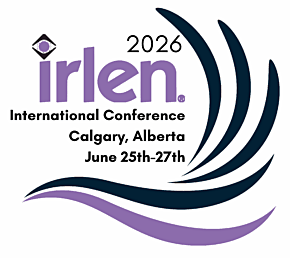Menu
- Irlen Alberta
- Home
- Irlen Syndrome
- Resources
- Contact

The Irlen Method helps those with visual processing deficits that affect learning and attention, also known as Irlen Syndrome.

The Irlen Syndrome problem lies in how the visual information is decoded by the brain. People with Irlen Syndrome “see” the printed page differently from others and may be unaware of this. This can lead to slow and inefficient reading, poor comprehension, fatigue and limited attention span.
Many people with Irlen Syndrome report that the text on the page appears to change and may even experience fatigue, tiredness, headaches, sore eyes or other symptoms of strain, all of which make reading difficult.
With the aid of coloured overlays and tinted lenses individuals with visual perceptual processing errors report reduced reading problems, headaches, light sensitivity. The symptoms associated with ADD and ADHD, autism and other related ailments are often reduced.
The Irlen Method can eliminate or reduce difficulties associated with:
Want to know why Irlen Syndrome causes physical symptoms? Watch this simulation.
This video gives an in-depth explanation of Irlen Syndrome and the Irlen Method.
Irlen Syndrome testing & treatment is recognized & funded by the Government of Canada for eligible students who are attending post-secondary schools.
In Alberta, an ECS child/student identified with a mild to moderate physical or medical disability is one whose physical, neurological, or medical condition interferes significantly with the ability to learn and requires adjustments to the learning environment. (Physical or Medical Disability (ECS: Code 30; Grades 1–12: Code 58).
Schools must have the documentation to support the assignment of a special education code. This includes a diagnosis of a disability or disorder by a qualified professional. In addition to this diagnosis, it is essential to have a clear indication of how the disability/disorder impacts the ECS child’s and Grade 1–12 student’s participation and learning in an educational environment. Please provide a copy of your child’s Irlen screening report to the school so they can code properly and provide the correct accommodations.
The Irlen Method for testing and assessment is available in Alberta. We can help with treatment for those afflicted with Irlen Syndrome.

The 15th Irlen International Conference will take place over 3 days, June 25-27, 2026 in beautiful Calgary, Alberta at the Calgary Marriott- Downtown. The conference venue is conveniently located across from the Calgary Tower, near the Calgary Stampede Grounds, Calgary Saddledome, and Studio Bell-National Music Centre. The hotel is also only 20 minutes from the international airport.
Diagnostician and Screener-only training and workshops. The Irlen International Conference 2026 is one you won’t want to miss!
» Read More «

Most mobile devices (phones and tablets) have a built-in colored overlay feature. It’s a fantastic feature that can make reading your phone or tablet much more comfortable for anyone who struggles with glare, eye strain, headaches, or blurry words.
» Read More «